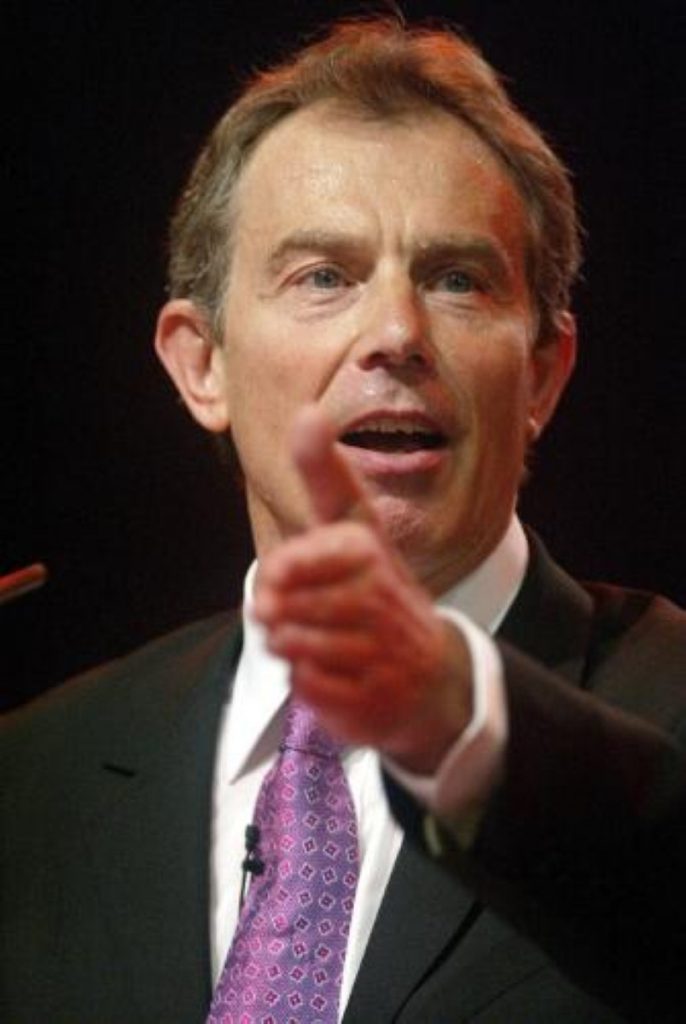Blair and Howard clash on delivery
Tony Blair and Michael Howard have clashed in the Commons over the Government’s record on policy delivery.
In the post-Queen’s Speech debate, Mr Howard accused Labour of failing to deliver improvements, whilst the Prime Minister sought to contrast the parties’ record in government.
Commending the Government’s legislative programme to the House, Mr Blair told MPs that it set out a “radical but realistic” agenda for the Government.
Speaking in the House of Commons this afternoon, Mr Blair said that Britain had the lowest interest rates, inflation and unemployment for decades, with living standards up. “That’s delivery after seven and a half years,” he said.


He told MPs: “We now have a NHS on its way back thanks to investment and reform.” Britain was “leading the way” on debt relief and aid for Africa, which was set to treble in the next three years.
The Conservatives had opposed “every penny piece” of the Government’s investment, he said.
The new legislative programme built on the Government’s record, Mr Blair said, and argued that the focus on crime and security should be seen in the context of next week’s Pre-Budget Report and other department’s five-year plans, he said.
“If we want to help the British people. we have to change radically the way public services, the welfare state and the criminal justice system work,” the Prime Minister told the House.
On law and order, he insisted that crime figures were down since 1997 by whatever measure. The Government’s anti-social behaviour laws were now accepted as one of the most successful pieces of legislation,’ and there were 12,500 extra police and CSOs, he said.
The Prime Minister defended the introduction of identity cards saying that “identity cards are in my judgment long-overdue.” He argued that “the threats faced by this country. are real,” and promised that the proposals on law and order will ensure “we have respect and responsibility back on the streets of Britain.”
As for the Conservatives’ plans, he described their budget proposals as “a fraud” and derided their plans to make savings in public administration before attacking their position on Europe.
He said a Tory government would mean going, “back to the failed policies of the past” and be damaging to mortgages, prosperity and employment. The Prime Minister urged voters to, “think and think again,” branding Mr Howard, “the reincarnation of a failed Tory past.”
Mr Howard accused the Labour Party’s policies of being “more rhetoric, more promises and more talk”.
The Conservative Party leader told MPs that a Tory government, if elected, would empower head teachers to exclude unruly pupils, offer patients the right to choose where they are treated, allow doctors to close wards, cut police paper work, give priority to genuine refugees and restore the link between the basic state pensions and average earnings.
He accused the Government of consistently failing to deliver, saying: “If it took Winston Churchill five years to win the Second World War, and if it took Clement Attlee six years to build the welfare state, surely seven and a half years is more than long enough for this Prime Minister to get a grip on the problems that face Britain today?”
Mr Howard said that hard working families are being charged £5,000 a year more in tax than they were in 1997. “They are fed up with talk, they want action”, he advised.
He then pledged to reinstate the link between the basic state pension and earnings, before renewing attacks on the “bureaucracy and waste from this bloated and fat government”.
Turning to the Home Office Bills, Mr Howard questioned the wisdom of introducing new measures five months before an election, claiming that “crime is out of control”.











